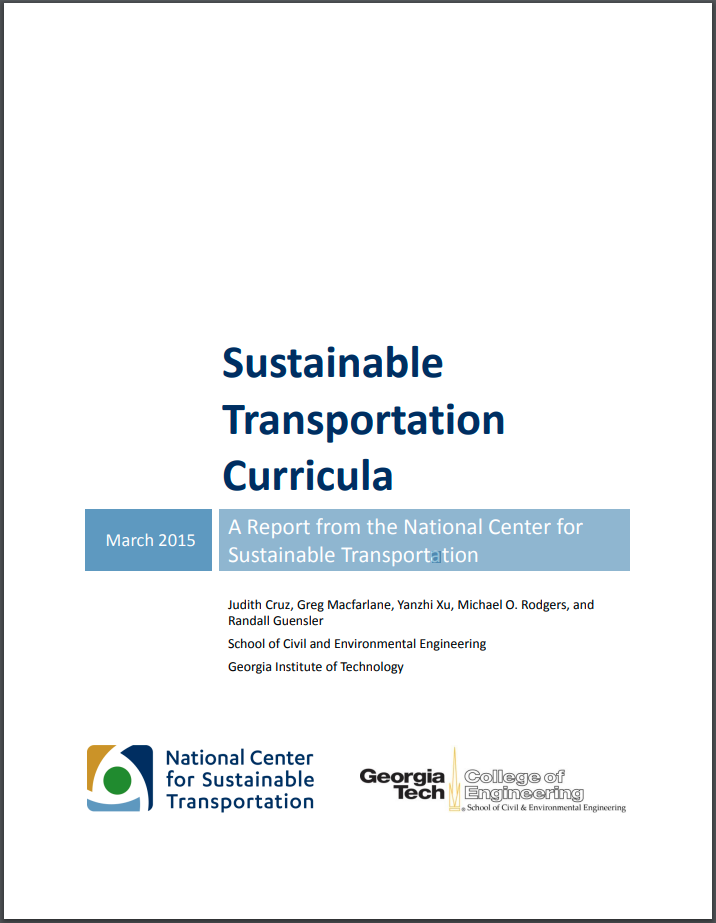 Over the last decade, academics have placed an increased emphasis on the incorporation of sustainability principles into their programs. Much of this effort has been at the grass-roots level, with sustainability modules appearing in individual courses or via new sustainability programs. A major goal of the National Center for Sustainable Transportation (NCST) is to ensure that current and future transportation professionals are equipped with the necessary knowledge and skills to design, operate, and maintain sustainable transportation systems. The goal of the sustainable transportation education project is to develop materials that will produce graduates (and train practitioners) capable of using and improving analytical tools for assessing sustainable transportation systems.
Over the last decade, academics have placed an increased emphasis on the incorporation of sustainability principles into their programs. Much of this effort has been at the grass-roots level, with sustainability modules appearing in individual courses or via new sustainability programs. A major goal of the National Center for Sustainable Transportation (NCST) is to ensure that current and future transportation professionals are equipped with the necessary knowledge and skills to design, operate, and maintain sustainable transportation systems. The goal of the sustainable transportation education project is to develop materials that will produce graduates (and train practitioners) capable of using and improving analytical tools for assessing sustainable transportation systems.
In 2015, the National Center for Sustainable Transportation inventoried transportation-related courses and course concepts via a review of the literature, existing course syllabi, textbooks, and reference books. The team also assessed models and modeling support tools, current research topics, and industry job descriptions to identify room for growth in sustainable transportation curricula. The 2015 report summarized common themes in existing curricula, including the general environmental focus and the diversity of delivery methods. Unique aspects of certain programs were identified and potential course content shortfalls were highlighted. The paper recommended specific sustainable transportation topics for inclusion in future courses.
Significant sustainability benefits can be derived via improvements in transportation network efficiency, sales and use of high-efficiency vehicles, substitution of alternative fuels, use of alternative modes and multimodality, integration of sustainable design, better integration of land use and transportation systems, etc. A series of forthcoming open-source courses may be developed by NCST partner universities. These courses would emphasize practical ways to analyze transportation systems and assess their impacts on transportation accessibility, economic performance, the environment, and quality of life. Instructors at any university would be able to use the five-week course modules in an a la carte fashion to strengthen the sustainability elements of their own courses, or to develop new courses. The modular structure will provide both breadth and depth in sustainable transportation topics.
